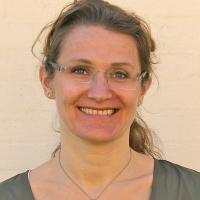DIIS co-hosts high-level event in New York
In collaboration with the International Peace Institute and the Danish UN Mission in New York, DIIS chaired a side-event held in the margins of the 74th opening of the United Nations General Assembly. The event focused on the roles and responsibilities of small and medium states in sustaining the multilateral system and included a panel of three foreign ministers: Jeppe Kofod (Denmark), Urmas Reinsalu (Estonia) and Ayman Al Safadi (Jordan).
Senior researcher at DIIS, Louise Riis Andersen opened the event together with Terje Rød-Larsen, the President of the International Peace Institute, while Kevin Rudd, the former Prime Minister of Australia moderated the panel discussion. Louise Riis Andersen’s opening remarks can be read in full below.
Here are Louise Riis Andersens opening remarks:
“Excellencies, Ladies and gentleman, Distinguished members of the audience,
Good afternoon – and thank you for taking time of your busy schedules to join us today for this timely event.
As Terje said, we are meeting at time when multilateralism – its crisis and how to defend, develop and safeguard it – is rapidly climbing the global ladder of political attention.
From Beijing to Berlin, from Delhi to Davos, decision-makers and agenda-setters are declaring their support for multilateralism and for the rules-based and cooperative international order that it underpins.
This is indeed a positive development for those of us who believe that multilateralism – much like democracy – is the worst form of governance, except for all the others.
Much like democracy, however, multilateralism comes in many shape and forms. Agreeing on a precise definition has always been difficult both in theory and practice.
In the present era, the need for rethinking existing approaches and finding new and more inclusive mechanisms for working together is increasingly clear. The old ways—however we define them—are bogged down by institutional gridlock and overlapping crisis of trust, legitimacy and efficiency.
Yet we also need to remind ourselves that there are many areas within the existing multilateral system where we continue to see effective cooperation. And that it is much easier to channel our attention into ensuring the effectiveness of existing institutions than it is to build new ones.
To overcome the perception that global cooperation is dysfunctional, we need to focus not just on the shortcomings of the existing system, which we—and this includes researchers such as myself—are so very good at identifying, but also on all the areas and issues where the system does work and is delivering results to states and people around the globe.
This includes pointing out how new actors and alliances are stepping up, even as some of the older mechanisms are paralyzed by disruptive and destructive power plays.
It was with this forward-looking approach—willed optimism if you like—that we set out to organize today’s event and asked our distinguished panelist to reflect on how they—as small states and middle powers—can work together even more closely to advance effective collective action in today’s fraying, yet totally interdependent world.
So without further ado, I will pass the floor to the moderator of today’s debate: The Honorable Kevin Rudd, 26th Prime Minister of Australia; President of the Asia Society Policy Institute; and Chairman of the IPI Board of Directors.
Thank you, the floor is yours.”
DIIS Experts

